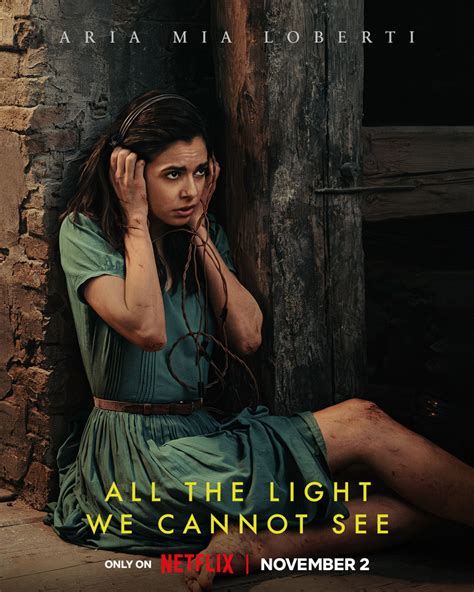A Masterpiece of Historical Fiction that illuminates the Darkness of War

Anthony Doerr’s Pulitzer Prize-winning novel, “All the Light We Cannot See,” captivates readers with its poignant and unforgettable tale of two extraordinary characters amidst the chaos of World War II.
Marie-Laure LeBlanc: A Blind Girl with an Extraordinary Sense of Perception
Marie-Laure, a brilliant young blind girl from Paris, relies on her other senses to navigate the world around her. Her heightened hearing, exceptional memory, and innate curiosity empower her to create an intricate sensory tapestry of her surroundings.
Werner Pfennig: A German Orphan with a Soul Tormented
Werner, an orphan from a small German town, is conscripted into the Nazi army. Despite his analytical mind and artistic talents, he struggles with the moral complexities of the war and the horrors he witnesses.
The Interconnecting Threads of Fate
As the war rages, Marie-Laure and Werner’s paths intertwine in unexpected ways. Marie-Laure, seeking refuge with her father in the walled city of Saint-Malo, discovers a precious gem with an enigmatic past. Werner, assigned to locate this same treasure, finds himself torn between his duty and his conscience.
The Sea of Stars: A Symbol of Hope and Loss
Doerr weaves a rich tapestry of imagery and symbolism throughout the novel, with the “sea of stars” emerging as a central motif. This celestial expanse represents both the vastness of possibilities and the tragedies that unfold beneath its indifferent gaze.
The characters in “All the Light We Cannot See” reflect the complexities of war:
- Marie-Laure: Her blindness becomes a metaphor for the darkness enveloping the world during wartime, but her determination to perceive light symbolizes hope amidst despair.
- Werner: His struggle with morality highlights the psychological toll of war on individuals and the erosion of innocence.
Historical Accuracy and Emotional Depth
Doerr’s meticulous research imbues the novel with a profound sense of historical authenticity. He vividly captures the horrors of the Holocaust, the brutality of urban warfare, and the resilience of the human spirit in the face of adversity.
The novel offers valuable insights into the human condition:
- The Power of Empathy: The contrasting perspectives of Marie-Laure and Werner foster empathy and understanding, reminding readers of the universal experiences of fear, hope, and loss.
- The Role of Art: Through Werner’s artistic endeavors, Doerr explores the transformative power of art in confronting darkness and preserving the beauty of the human experience.
Critical Acclaim and Awards
“All the Light We Cannot See” has garnered widespread critical acclaim and numerous awards, including:
- Pulitzer Prize for Fiction (2015)
- National Book Award for Fiction (2014)
- Andrew Carnegie Medal for Excellence in Fiction (2015)
Table 1: Marie-Laure’s Sensory Abilities
| Sense | Description |
|---|---|
| Hearing | Exceptional auditory acuity; ability to discern faint sounds and create detailed mental images |
| Smell | Keen sense of smell; can distinguish subtle scents and identify objects by their aroma |
| Touch | Sensitive and dexterous; explores objects with her fingers to form tactile impressions |
| Taste | Refined palate; enjoys experimenting with different flavors and textures |
| Memory | Near-photographic memory; recalls details with extraordinary accuracy |
Table 2: Werner’s Psychological Conflicts
| Conflict | Description |
|---|---|
| Moral Dilemma | Torn between his duty to the Nazi regime and his own conscience |
| Identity Crisis | Struggles to reconcile his artistic aspirations with the realities of war |
| Social Isolation | Isolated from his family and peers, finds solace in solitude and his art |
| Emotional Dissonance | Experiences feelings of guilt, shame, and remorse over the atrocities he witnesses |
| Existential Crisis | Questions the meaning of life and the purpose of his existence in a world torn apart by war |
Table 3: The Significance of “The Sea of Stars”
| Symbol | Interpretation |
|---|---|
| Infinite Possibilities | Represents the boundless potential and opportunities that lie before humanity |
| Indifferent Force | Depicts the unwavering presence of fate and the inevitability of certain events |
| Witness and Recorder | The stars bear witness to the tragedies and triumphs of the human experience |
| Source of Hope | Amidst the darkness of war, the stars offer a glimmer of hope and remind us of the beauty of life |
Table 4: Awards and Accolades for “All the Light We Cannot See”
| Award | Year |
|---|---|
| Pulitzer Prize for Fiction | 2015 |
| National Book Award for Fiction | 2014 |
| Andrew Carnegie Medal for Excellence in Fiction | 2015 |
| Goodreads Choice Award for Historical Fiction | 2014 |
| New York Times Best Book of the Year | 2014 |
Conclusion
“All the Light We Cannot See” is a literary masterpiece that shines a brilliant light on the darkness of war, revealing its complexities and profound impact on human lives. Through the intertwined journeys of Marie-Laure and Werner, Anthony Doerr illuminates the power of hope, the universality of human suffering, and the enduring importance of empathy and compassion.
